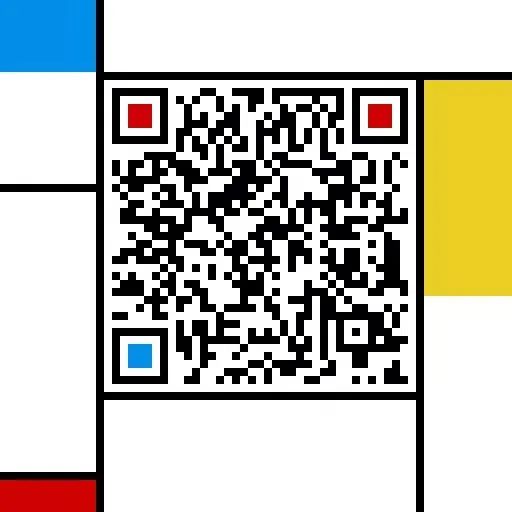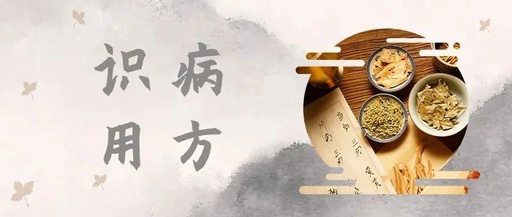
Author | Feng Yu Editor | Chun Feng Reviewer | Xiao Ye
Recently, a patient dressed in long sleeves entered the clinic, and my first impression was: Yang deficiency.
When it was his turn, before I could ask about his condition, I felt his cold limbs while taking his pulse, which was a deep and weak Yang deficiency pulse. Observing his tongue, it was pale, swollen, lacking color, with a white coating.
The patient reported that due to his habit of consuming cold drinks during his youth, he now experiences discomfort in his stomach, even pain, and diarrhea when he eats anything slightly cold.
Moreover, he feels colder than those around him and always needs to wear more and thicker clothing.
Clearly, this is a case of Spleen and Stomach Yang deficiency caused by excessive consumption of cold foods. I thought of the formula Jia Wei Zhi Zhong Tang (Modified Regulate the Middle Decoction).


Jia Wei Zhi Zhong Tang (Modified Regulate the Middle Decoction)

Jia Wei Zhi Zhong Tang is derived from the “Revised Yan’s Ji Sheng Fang” and is used to warm the middle and strengthen the spleen, primarily treating Spleen and Stomach deficiency, irregular eating habits, excessive consumption of cold foods, intestinal rumbling, abdominal pain, and diarrhea.
Reference dosage: 12g of Gan Jiang (Dried Ginger), 12g of Bai Zhu (White Atractylodes), 12g of Qing Pi (Green Tangerine Peel), 12g of Chen Pi (Dried Tangerine Peel), 12g of Sha Ren (Amomum Fruit), 6g of Ren Shen (Ginseng), 6g of Zhi Gan Cao (Honey-Fried Licorice), 10g of Sheng Jiang (Fresh Ginger), and 6g of Da Zao (Jujube).
Jia Wei Zhi Zhong Tang is an ancient formula specifically for Spleen and Stomach Yang deficiency, modified from the “Li Zhong Tang (Regulate the Middle Decoction)” found in one of the four classic texts of TCM, “Shang Han Za Bing Lun (Treatise on Cold Damage and Miscellaneous Diseases).”
Li Zhong Tang includes Gan Jiang, Ren Shen, Bai Zhu, and Zhi Gan Cao.
Among them, Gan Jiang serves as the monarch herb, playing a role in warming the middle, dispelling cold, and invigorating Spleen Yang. The term “warming the middle” refers to the middle jiao, which is known as the Spleen and Stomach. Gan Jiang, with its strong spicy and warming properties, can dispel the cold from the Spleen and Stomach.
In addition to generating cold, Yang deficiency can also lead to the production of dampness due to impaired Spleen transformation and transportation functions.
When cold and dampness accumulate in the body, in addition to Gan Jiang dispelling cold, it is also necessary to include herbs that help eliminate dampness. Bai Zhu is used for this purpose, as it can strengthen the Spleen and dry dampness, restoring the Spleen and Stomach’s function as a “water pump” to expel cold dampness from the body.
Coupled with Ren Shen, it restores the original Qi of the Spleen and Stomach, assisting Gan Jiang in dispelling cold from the Spleen and Stomach, and helping Bai Zhu strengthen the Spleen and eliminate dampness, thus restoring the Spleen and Stomach’s vitality.
Li Zhong Tang also contains Zhi Gan Cao, which serves as a nourishing herb, supporting the other herbs in the formula to benefit the Spleen and Stomach.
On the other hand, Zhi Gan Cao has a sweet and harmonizing effect. Since Gan Jiang is very spicy and hot, if its properties cannot be fully absorbed due to poor Spleen and Stomach function, the hot nature of the herb may stagnate in the meridians, leading to false heat symptoms. At this time, the harmonizing properties of Zhi Gan Cao can help to nourish the earth and subdue the fire, preventing the appearance of false heat symptoms.
Sha Ren awakens the Spleen and opens the appetite. When the Spleen is obstructed by dampness, one often feels weak and mentally sluggish.
Sha Ren’s role is to awaken the Spleen, allowing it to function properly. Additionally, for diarrhea caused by Spleen deficiency and heavy dampness, Sha Ren can effectively transform dampness and stop diarrhea.
Qing Pi and Chen Pi, although they are essentially the same herb, have different effects. Qing Pi disperses liver Qi, breaks stagnation, and resolves accumulation, while Chen Pi regulates Qi, harmonizes the middle, dries dampness, and transforms phlegm. Qing Pi primarily affects the liver and Spleen, while Chen Pi focuses on the Spleen and lungs.
When Spleen deficiency generates dampness, the dampness can obstruct the flow of Qi in the body, leading to stagnation not only in the Spleen and Stomach but also in other organs such as the liver and lungs.
Moreover, since the liver governs the smooth flow of Qi and the lungs govern the descending of Qi, the rising of liver Qi can promote the Spleen’s upward clarity, while the descending of lung Qi can facilitate the downward movement of Stomach Qi.
Qing Pi and Chen Pi, although they are essentially the same herb, have different effects. Qing Pi primarily affects the liver and Spleen, while Chen Pi focuses on the Spleen and lungs.
Qing Pi can disperse liver Qi, while Chen Pi, in addition to regulating Qi and transforming phlegm, can also smooth lung Qi. Together, they adjust the flow of liver and lung Qi, thereby regulating the ascending and descending functions of the Spleen and Stomach to achieve the effect of strengthening the Spleen and eliminating dampness.
Furthermore, if there is abdominal pain and diarrhea due to excessive consumption of cold foods, Qing Pi and Chen Pi can also exert certain effects in promoting Qi flow and alleviating pain.
Additionally, fresh ginger and jujube are included in the formula. These two food-medicinal herbs are also used to nourish the Spleen and Stomach, along with Zhi Gan Cao and Ren Shen, collectively known as the “Four Spleen Herbs,” which is the most commonly used combination for protecting the Spleen and Stomach in “Shang Han Za Bing Lun.”
With insufficient Spleen Yang and excessive cold dampness:
In the past, there was a type of close-fitting clothing called a “du dou” (belly wrap), which many people remember from their childhood as a means to warm the belly and protect the stomach from cold. Moreover, even on hot summer nights, elders would instill in us the idea that we should cover our belly button with a blanket to prevent cold.
These two common daily habits reflect one thing: the belly should not be exposed to cold; it must be kept warm.
The abdomen is the residence of the five organs and six bowels, referred to as the “palace of the five organs and six bowels, the source of Yin, Yang, Qi, and blood.” Additionally, since the back is Yang and the abdomen is Yin, the abdomen is more susceptible to the invasion of Yin Qi and the internal generation of cold pathogens. The Spleen and Stomach reside in the middle jiao, governing the four limbs. If the Spleen and Stomach are long-term exposed to cold, the Yang Qi of the middle jiao is restrained, leading to cold pain in the epigastrium and abdomen, a preference for warmth and pressure, and a local abdominal temperature lower than the rest of the body.
Cold pathogens easily cause stagnation, just as when the temperature drops, everything in the world enters a state of relative stagnation: animals hibernate, human joints become stiff, and machines operate more slowly… The circulation of Qi and blood in the body also slows down due to the invasion of cold pathogens;
At the same time, dampness is heavy, so cold and dampness often appear together. Due to the physiological characteristics of the Spleen, Spleen deficiency easily generates cold dampness, and cold dampness can easily obstruct the Spleen and Stomach. Cold dampness obstructing the Spleen can also lead to diarrhea, heavy and painful joints, pale tongue, and white greasy coating.
Furthermore, it is important to pay attention to daily diet; remember to exercise more and get more sunlight to restore Yang Qi; at the same time, be mindful of keeping warm, preventing the internal generation of cold pathogens while not forgetting to guard against external cold pathogens. I believe that good lifestyle and dietary habits will gradually restore the body’s Yang Qi!


Long press to scan the code to add the editor on WeChat (chunfeng52566)
Note “Join Group” to communicate with many friends about TCM
The content of this article is for reference only; non-professionals in TCM should not attempt to use the herbs.Original submission/Business cooperation: [email protected] (email), chunfeng52566 (WeChat);

